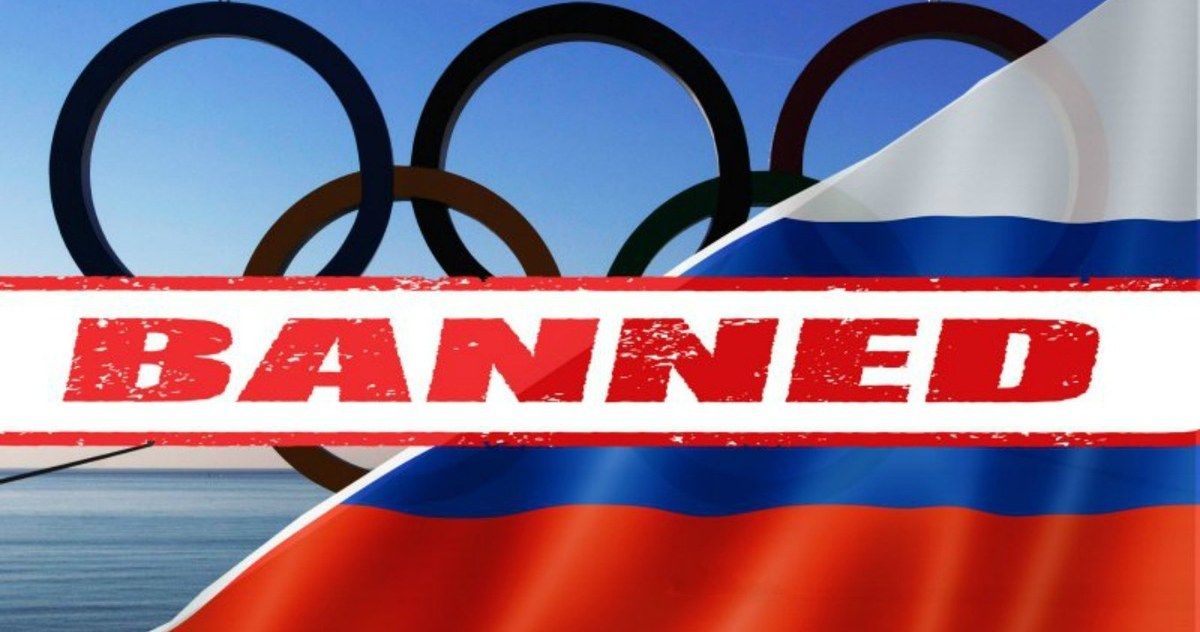With just over two months left before the PyeongChang Winter Olympics 2018 get started, the International Olympic Committee has just banned Russia from the games, which will certainly be a hot-button issue during NBC's Olympic coverage. The announcement was made today after the findings of the Schmid Report were released, which confirmed the "the systemic manipulation of the anti-doping rules and system in Russia, through the Disappearing Positive Methodology and during the Olympic Winter Games Sochi 2014." Here's what IOC President Thomas Bach had to say in a statement.
"This was an unprecedented attack on the integrity of the Olympic Games and sport. The IOC EB, after following due process, has issued proportional sanctions for this systemic manipulation while protecting the clean athletes. This should draw a line under this damaging episode and serve as a catalyst for a more effective anti-doping system led by WADA. As an athlete myself, I feel very sorry for all the clean athletes from all NOCs who are suffering from this manipulation. Working with the IOC Athletes' Commission, we will now look for opportunities to make up for the moments they have missed on the finish line or on the podium."
The sanctions imposed on Russia are so severe that there will not be the presence of a Russian flag or its national anthem at all during the Olympic Games' opening and closing ceremonies, but individual athletes or team groups who are proven to be clean, will be allowed to compete under the designation, "Olympic Athlete from Russia (OAR)," who will compete with a uniform bearing this name and under the Olympic Flag, and the Olympic Anthem will be played in any ceremony, in place of the Russian national anthem. These athletes will receive the same, "technical and logistical support as any other Olympic athlete."
As for the athletes that will be selected, they can not have been disqualified or declared ineligible for any Anti-Doping Rule Violation and must have passed all of the tests recommended by the Pre-Games Testing Task Force. Those who will be strictly prohibited from the Games include any, "member of the leadership of the Russian Olympic Team at the Olympic Winter Games Sochi 2014," along with any coach or medical doctor whose athlete has committed an Anti-Doping Rule Violation. It isn't clear at this time how many Russian athletes will agree to these conditions and compete, since their country's flag and national anthem will be completely removed from these ceremonies.
The International Olympic Committee also removed Russia's Minister of Sport, Vitaly Mutko, and his then Deputy Minister, Yuri Nagornykh, from any participation in all future Olympic Games, while also removing Dmitry Chernyshenko, the former CEO of the Organising Committee Sochi 2014, from the Coordination Commission Beijing 2022. The IOC also suspended Russian Olympic Committee member Alexander Zhukov as an IOC member, while ordering the Russian Olympic Committee to reimburse the IOC funds totalling $15 million, for costs incurred in this investigation, and to, "contribute to the establishment of the Independent Testing Authority (ITA), to build the capacity and integrity of the global anti-doping system."
Russia lead the Sochi games with 33 medals overall, including 13 gold medals, but many believe those were gained due to a widespread Russian movement to subvert anti-doping policies, with a series of investigations by the World Anti-Doping Agency revealing that more than 1,000 Russian athletes over 30 sports in both Winter and Summer Games had been doping since 2011. The investigations were bolstered by former Moscow antidoping lab director Grigory Rodchenkov, a whistleblower who was painted as a rogue actor by his own government. He fled to the United States in 2015 after two of his colleagues mysteriously died, and he was also the subject of the Netflix documentary Icarus. You can read the full report at Olympic.org.

